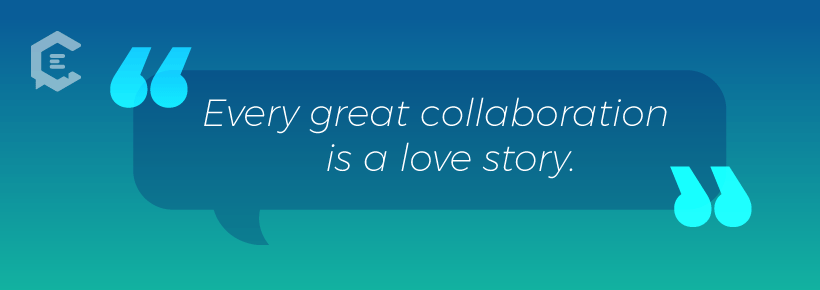With multiple network shows in the pipeline and too many hit podcasts to count, Wondery is making good on the attention-grabbing promise announced in its first year: It’s evolving from a premium podcast producer into a full-service production company with a pipeline of hit shows and films. Early Wondery success ‘Dirty John’ was a home run for Bravo at the top of 2019, and Wondery is collaborating with multiple studios and production companies to follow up on that success—next in line is ‘Gladiator‘, the modern-day morality play about football player/convicted murderer Aaron Hernandez.
Although Wondery does true crime well, the company has always produced content about a multitude of genres, including business, bio, and what can only be described as inspo.
Last year we covered ‘Business Wars’, the series that took a deep dive into long-standing grudges between corporate giants. Its next release in that category is ‘One Plus One’, which explores equally iconic names from the exact opposite entry point. Positioned not just as business, but as a business-bio crossover, ‘One Plus One’ explores in depth the stories of iconic duos and collaborations.
Here, we’re chatting with Wondery Chief Content Officer Marshall Lewy about the nuts and bolts of producing compelling podcasts in any genre. Read on for trade secrets in how great podcast producers craft story, hire voices, and how businesses can emulate their practices to get way more downloads and tell brand stories better.
The promo copy of ‘One Plus One’ begins, “Every great collaboration is a love story.” The term “love story” is one that a lot of business execs would be leery of exploring on the record. How would you suggest producers of branded business podcasts unlock the love/passion/hate within their subjects, who have been media trained to be cautious and inscrutable?
When we make podcasts we’re thinking about the emotions they’re going to elicit even if it’s a business podcast. But when you’re talking about branded business podcasts, I have found there’s a very strong desire to stay on message, which is part of the training.
Of course you want to get your message across, but listeners want authenticity. So the key is to find the balance. Making something that’s creatively exciting is in some ways more important than getting across talking points. You can find other ways to make sure listeners know that your company or your brand is the one behind the podcast.
How you would do that is pre-interview your guests, at least a little bit. Make sure they’re going to be what we call good talkers. That’s step one. Step two is the old radio trick: You just keep asking the question till you get to a more interesting answer.
Another tactic is to say, “Explain it to me with a story. Give me an example, and take me through that time.”
What are the qualities of a great business podcast?
I think with podcasts in general, people want some tangible benefit for their time. It’s still a medium where people want to learn something or get something. Even something like ‘One Plus One’ — which is very story driven, about great collaborations in history — we want to make sure you learn something about how you can collaborate with people in your life.
Even true crime: We don’t want to do any true crime stories that don’t have a larger point. True crime is a way to look at the human condition in our society. But for business, you want to have a tangible benefit of something people can bring into their workplace, in a way that’s specific, original and engaging.
Also, clarity is key — being interesting and entertaining.
How would you suggest that podcast writers approach storytelling differently for this medium to increase the entertainment value/listenability?
A lot of credits transfer from print or prose writing, but it is a completely different medium. You generally want to write how you talk, and sound natural. One thing I like to remind print reporters who are working in audio for the first time is, the listener is usually 2-5 seconds behind in their processing. By the time the listener is thinking about what was just said, you’re already ahead moving to the next point.
So, there’s something in audio called signposting, where you sort of reset and you say, “Remember when I mentioned that guy a bit earlier — that guy is so-and-so’s brother.” The NPR training guide and Transom are great online resources filled with lessons and how-to articles on this subject.
Bottom line, you never want your listener to be bored or confused. It’s better to be conversational, to be clear, and to sometimes repeat things. Also, make sure that the energy is engaging and the audio is high-quality.
What do you think people who create/produce business podcasts are afraid of, that they could be less afraid of in order to improve the quality of the content?
My personal opinion is that you should focus on making the most interesting podcast possible that fits your brand identity, and worry a lot less about hitting talking points that actively promote products in the body of the content. Listeners specifically want authenticity and material that is simply interesting. It creates a big barrier when they feel like they’re being marketed to. Branded content producers should be less afraid that people aren’t going to know who made this podcast.
I’ve been in an interview with a brand person where the PR team is in the room, and whatever happened, the brand manager just would not go off message, and I don’t believe that serves the brand when the brand person does that.
What are the qualities of a great podcast host?
They should be energetic, curious about other people and the world, engaging… and we like to have hosts who have strong voices and don’t stumble or mumble or stutter. That’s not always necessary, but we prefer to have — I wouldn’t say radio voices, but people who have clear strong voices.
You have to switch gears constantly from producing true crime to business/celebrity. How does your approach change, and how did it stay the same?
A lot of our true crime is investigative, and that’s the biggest difference. For these, we’re often working with print partners like the Boston Globe and LA Times, that have reporters who are out there doing interviews and collecting firsthand research.
With ‘One Plus One’, we’re working with writers who have covered the material extensively in the past — experts on a certain topic. We just did Shaq + Kobe for ‘One Plus One’, and and Elizabeth Kaye who wrote it covered Shaq and Kobe for years and years. So those authors are sharing that experience.
The similarity is, we want to immerse the listener in an emotional experience, tell an engaging story, and we want the listener to feel something and learn something about themselves and the world. That’s true whether that’s true crime, business, or biography, or any other genre.
Were there similarities in the development, writing and production methodology between ‘One Plus One’ and ‘Business Wars’?
We used a similar model, although one was about rivalries and the other was about collaborations. It’s the same storytelling mechanism, which we call single voice narration — one narrator who does all the voices and tells the whole story.
Almost everyone today thinks they can produce a hit podcast. Why is this format so popular right now — not to consume, but to create?
People are getting excited about it as listeners. But I think it is harder than it looks, and at this point there are hundreds of thousands of podcasts that aren’t breaking thru. Part is about marketing and discoverability. The market is maturing to the point where it’s harder to have the kind of podcast that just breaks through when you have it on your own.
But part is that people think it can be done on the side, and it’s not that simple.
True, there’s a very low barrier to entry to have the basic tools to make one and put one out. All you need is a microphone and a computer. But doing it so it sounds good, and so it’s engaging and draws an audience, is a little more complicated than that.
What are two episodes of ‘One Plus One’ stand out as great examples of business storytelling — and why would you suggest people in brand marketing should listen to those two specifically?
Episodes 3 and 4 of the Lennon McCartney story covers the heart of BeatleMania. I think that would be interesting from a business executive’s perspective — to find out how Lennon and McCartney hung together to make this amazing music even though their egos were getting in the way and they were moving in different directions creatively. To see all the strife, then hear the music, and be reminded (if you don’t know already) of the music that they created out of it is a pretty fascinating story.
What genre is next for Wondery?
We have a sports show coming out that we’re really excited about called ‘Sports Wars’ — our first sports show.
More articles on the art of sound:
- Podcasting to Win: With Wondery Founder Hernan Lopez
- Best Wondery Podcasts: 5 Series to Tune Into
- The Niche Freelancer: Stories in Sound, From NPR to Podcast Producing
- Guide to the Future Sound of Content Marketing








